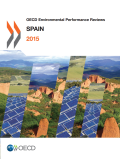
The OECD Environmental Performance Review Programme provides independent assessments of countries’ progress in achieving their domestic and international environmental policy commitments, together with policy relevant recommendations. This report is the third OECD review of Spain’s environmental performance. It evaluates progress towards sustainable development and green growth, with a focus on biodiversity and the environmental performance of the private sector.
Reviews are conducted to promote peer learning, enhance governments’ accountability to each other and to the public, and improve countries’ environmental performance, individually and collectively. They are supported by a broad range of economic and environmental data. Each cycle of the Environmental Performance Reviews covers all OECD member countries and selected partner countries.
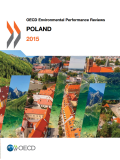
The OECD Environmental Performance Review Programme provides independent assessments of countries’ progress in achieving their domestic and international environmental policy commitments, together with policy relevant recommendations. They are conducted to promote peer learning, to enhance governments’ accountability to each other and to the public, and to improve countries’ environmental performance, individually and collectively. The reviews are supported by a broad range of economic and environmental data. Each cycle of the Environmental Performance Reviews covers all OECD member countries and selected partner countries.
This report is the third OECD review of Poland’s environmental performance. It evaluates progress towards sustainable development and green growth, with a focus on forestry and biodiversity, as well as waste and materials management.
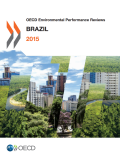
This report is the first OECD review of Brazil’s environmental performance. It evaluates progress towards sustainable development and a green economy, with a focus on conservation and sustainable use of biodiversity and protected areas.The OECD Environmental Performance Review Programme provides independent assessments of country progress in achieving domestic and international environmental policy commitments. The reviews are conducted to improve environmental performance, promote peer learning and enhance accountability. They are supported by a broad range of economic and environmental data, and provide policy-relevant recommendations.Each review cycle covers all OECD countries and selected partner economies.
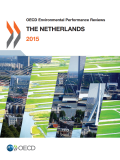
This report is the third OECD review of environmental performance in the Netherlands. It evaluates progress towards sustainable development and green growth, with a focus on sustainable mobility, and waste and materials management.
The OECD Environmental Performance Review Programme provides independent assessments of country progress in achieving domestic and international environmental policy commitments. The reviews are conducted to improve environmental performance, promote peer learning and enhance accountability. They are supported by a broad range of economic and environmental data, and provide policy-relevant recommendations.
Each review cycle covers all OECD countries and selected partner economies.
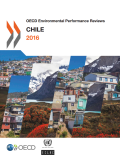
OECD Environmental Performance Reviews provide independent assessments of countries’ progress towards their environmental policy objectives. Reviews promote peer learning, enhance government accountability, and provide targeted recommendations aimed at improving environmental performance, individually and collectively. They are supported by a broad range of economic and environmental data, and evidence-based analysis. Each cycle of Environmental Performance Reviews covers all OECD countries and selected partner economies.
This report is the second Environmental Performance Review of Chile. It evaluates progress towards sustainable development and green growth, with a focus on climate change and biodiversity conservation and sustainable use.
